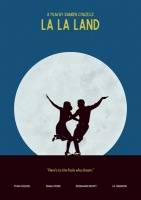the director of 'groundhog day' died on february 24, 2014 leaving behind his films and this interview:

having seen 'eternal sunshine of the spotless mind' now it's time for you to decide which of the posters you like best.. a comment explaining your decision is going to be most welcome..
but before you do it, please investigate what pszp means.. the poster for the news item you're reading right now is a tribute to a man who's passed away in the last few weeks...

Ukraine crisis: Obama attacks Putin over Russia's role
Dan Roberts in Toluca
theguardian.com, Thursday 20 February 2014 03.44 GMT
US president accuses his Russian counterpart of failing to respect people’s basic freedoms in both Ukraine and Syria
Barack Obama has sharply criticised Russian support for crackdowns in Ukraine and Syria, calling for a transitional government in Kiev and personally accusing Vladimir Putin of failing to respect basic freedoms in both countries.
In his most explicit comments yet on alleged Kremlin involvement, the president used a press conference at the North American leaders’ summit in Mexico to warn against viewing the countries as a “cold war chessboard”, insisting the US was “on the side of the people”.
“You have, in this situation, one country that has clearly been a client state of Russia, another whose government is currently being supported by Russia, where the people obviously have a very different view and vision for their country,” said Obama.
“I think this is an expression of the hopes and aspirations of people inside of Syria and people inside of the Ukraine who recognise that basic freedoms – freedom of speech, freedom of assembly, fair and free elections – are fundamental rights that everybody wants to enjoy.”
Obama continued with an unusually personal attack on the Russian president, suggesting recent setbacks in Ukraine and at Syrian peace talks had pushed their already strained relationship to a fresh low.
“Mr Putin has a different view on many of those issues [of basic freedom] and I don’t think that there’s any secret on that,” he said.
“Our approach in the United States is not to see these as some cold war chessboard in which we’re in competition with Russia. Our goal is to make sure that the people of Ukraine are able to make decisions for themselves about their future, that the people of Syria are able to make the decisions without having bombs going off.
“There are times, I hope, where Russia will recognise that over the long term they should be on board with those values and interests as well. Right now there are times where we have strong disagreements.”
Both Obama and the Canadian prime minister, Stephen Harper, who shared the stage at the press conference in Toluca, were cautious about reports of a truce with Ukrainian protestors, urging political leaders in Kiev to go further and establish a transitional government.
“My hope is at this point that a truce may hold,” said Obama. “But Stephen is exactly right; ultimately the government is responsible for making sure that we shift towards some sort of unity government, even if it’s temporary, that allows us to move to fair and free elections so that the will of the Ukrainian people can be rightly expressed without the kinds of chaos we’ve seen on the streets, without the bloodshed that all of us I think strongly condemn.”
Events in Kiev have overshadowed the Mexico summit and precipitated a rapid hardening of the US position over the last 24 hours. Arriving on Wednesday morning, Obama directed his criticism solely at the Ukrainian government, which he said was “primarily responsible for making sure that it is dealing with peaceful protesters in an appropriate way”.
Later in Washington the state department was more explicit in its comments on Russian involvement but said it was difficult to be sure exactly how much of an influence Kremlin support had played.
“We’ve seen a pattern of [financial support] beginning with the $15bn in loans that Russia offered in December,” said a senior state department official. “But these have been non-transparent discussions. So it’s very hard to have a good ability to analyse. And with regard to how it might have influenced President Yanukovych’s thinking, I personally have long since stopped trying to read his mind.”
Obama showed little hesitation in blaming Russian support for exacerbating the Ukrainian crisis.
“When I speak to Mr Putin, I’m very candid about those disagreements,” added Obama. “But I want to emphasise this. The situation that happened in Ukraine has to do with whether or not the people of Ukraine can determine their own destiny.”

Mirosław Czech: W sobotę 22 lutego z samego rana bp Stanisław Szyrokoradiuk, biskup pomocniczy archidiecezji kijowsko-żytomierskiej Kościoła rzymsko-katolickiego na Ukrainie, przyniósł na Majdan krzyż miłosierdzia poświęcony przez Jana Pawła II. Krzyż - mówił do zebranego tłumu - wędruje do stolic różnych krajów świata i za jego pośrednictwem dokonują się cuda. Jeśli gdzieś trwały konflikty, to dzięki niemu ustają. "Zobaczycie, że i u nas będzie podobnie".
Następnie wyjął z kieszeni sutanny kartkę papieru. Biblia - mówił - opisuje wyjście narodu wybranego z niewoli egipskiej. Jesteśmy w podobnej sytuacji, bo nasz faraon nie chce nas wypuścić ze swojej niewoli. Gdy jednak Bóg kogoś chce ukarać, to odbiera mu rozum. Nie inaczej stało się z naszym faraonem, bo i na niego spadły plagi. Po raz pierwszy, gdy odmówił podpisania umowy stowarzyszeniowej z UE. I tak po kolei hierarcha wymienił dziewięć plag, którymi były momenty konfrontacji z Majdanem aż do apogeum z krwawym czwartkiem 20 lutego. "Plagą dziesiątą będzie próba podzielenia kraju, lecz to mu się nie uda. I wtedy nastąpi jego koniec" - podsumował.
Na podstawie opowieści biblijnej bp Stanisław przewidział rozwój sytuacji na Ukrainie. Inaczej niż międzynarodowa opinia publiczna, a także - jak się wydaje - dyplomaci i analitycy. Widać, jak bardzo należało się wsłuchać w głos ludzi na Majdanie...

the euromaidan seems to stay there till all the things are sorted out.. possible scenario?
Aleksander Kwaśniewski: Myślę, że w Polsce dokonuje się wielkie przewartościowanie. Historyczne resentymenty jakby stały się drugorzędne wobec przekonania, że mamy sąsiada, z którym nas więcej łączy, niż dzieli, i któremu należy w takiej chwili pomagać. Mogłoby to być wielkim kapitałem na przyszłość...
Mirosław Czech: "Miękka siła" Unii i "realizm" satrapy
Trwające od trzech miesięcy protesty na Ukrainie były jak lustro, w którym Europa mogła się przejrzeć. Zobaczyć, w jakim stanie znajdują się wartości, na których została zbudowana. I odpowiedzieć: czy i w jaki sposób może ich bronić na swoich peryferiach. Poznać siłę swoich instytucji oraz ich zdolność do przyjścia z pomocą tym, którzy za urzeczywistnienie marzenia o dołączeniu do Europy gotowi są zapłacić życiem.
Skonfrontować swoją zdolność do prowadzenia polityki opartej na "miękkiej sile" z "realizmem" satrapów grabiących własny naród i trzymających się władzy wszelkimi środkami. Włącznie z rzezią dokonaną na nieuzbrojonych manifestantach.
Europa zdała egzamin z deklaracji i uniesień. Całkowicie usprawiedliwionych, bo "euromajdan to największa proeuropejska demonstracja w historii UE" - jak podkreślali europejscy politycy. Często gościli oni na Majdanie, szczególnie na początku, gdy jeszcze nie polała się krew. Parlament Europejski podejmował uchwały z poparciem dla protestujących; Catherine Ashton, szefowa unijnej dyplomacji, kilkakrotnie gościła w Kijowie, by mediować między Janukowyczem a opozycją. Podobnie Stefan Fülle, komisarz ds. rozszerzenia Unii.
Europejscy intelektualiści i dziennikarze słali na Ukrainę wyrazy solidarności. Europejskie media z coraz większym przejęciem i współczuciem relacjonowały wydarzenia z Kijowa. Dziennikarze mężnie stali na Majdanie również wtedy, gdy groziło to ich życiu i zdrowiu. Także dzięki nim wstrząsające zdjęcia z Kijowa obiegły świat. Świat trafnie ocenił, że krwawym satrapą z Kijowa kieruje długa ręka Putina...
Ukraine in flames
Putin’s inferno
The West must take a tough stand with the government of Ukraine - and with Russia’s leader
Feb 22nd 2014 | From the print edition

CIVIL strife often follows a grimly predictable pattern. What at first seems a soluble dispute hardens into conflict, as goals become more radical, bitterness accumulates and the chance to broker a compromise is lost. Such has been the awful trajectory of Ukraine, where protests that began peacefully in November have combusted in grotesque violence. The centre of Kiev, one of Europe’s great capital cities, this week became a choking war zone. Buildings and barricades were incinerated and dozens of Ukrainians were killed.
Despite talk of a truce between some of the participants, the horror could yet get much worse. The bloodshed will deepen the rifts in what has always been a fragile, complex country (see article). Outright civil war remains a realistic prospect. Immediate responsibility for this mayhem lies with Viktor Yanukovych, Ukraine’s thuggish president. But its ultimate architect sits in the Kremlin: Vladimir Putin...
'I like to listen. I have learned a great deal from listening carefully. Most people never listen...'

